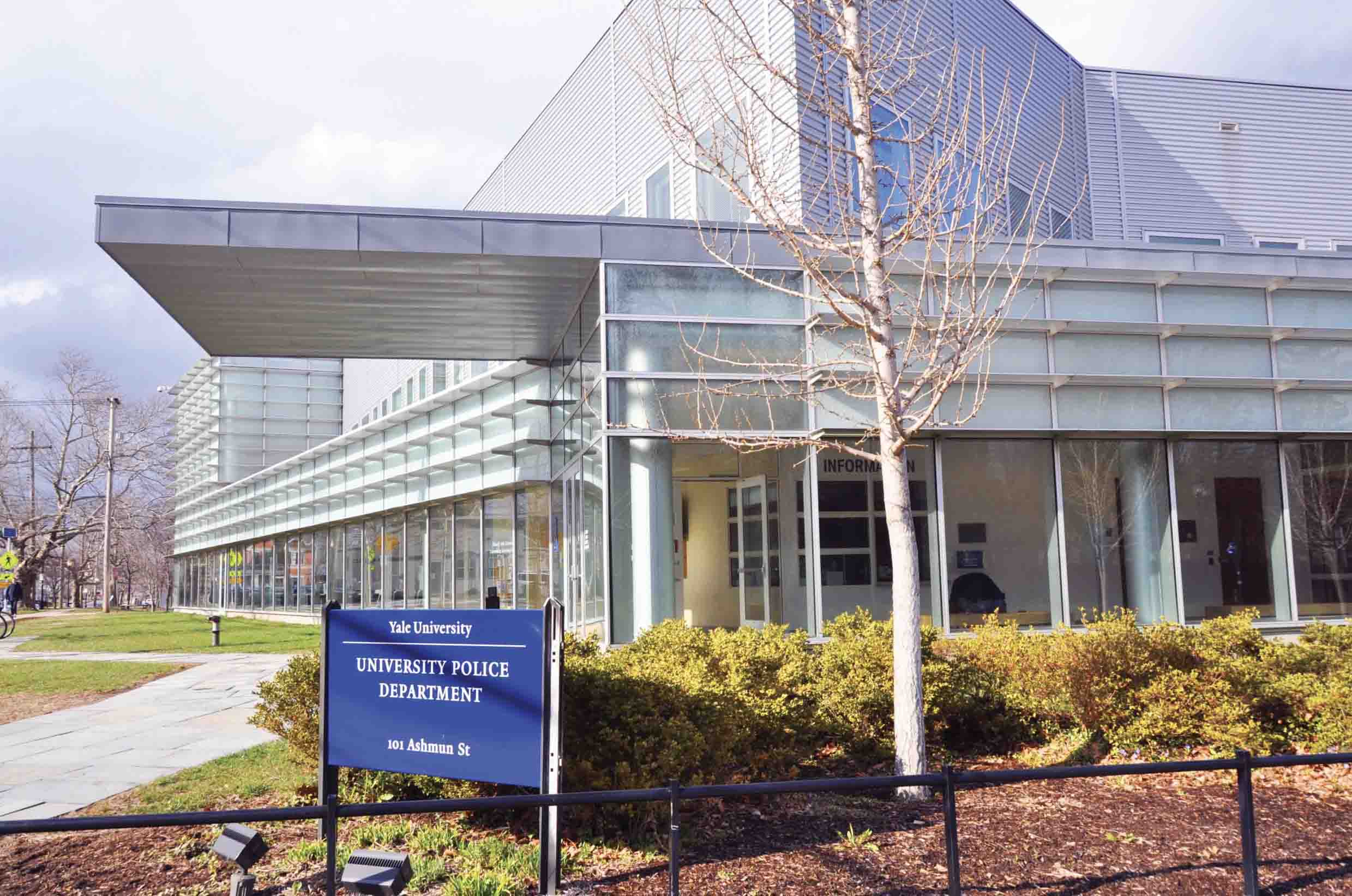“An imbalance of power”: Students criticize YPD for limited reforms
As YPD implements a new differential response model to emergency calls, student activists have continued to push for abolition.

Yale’s committee on policing is facing criticism from student activists who view the committee as unresponsive to calls for significant reform.
The committee, which is made up of five Yale administrators, is charged with reviewing data and soliciting input from community members along with implementing reforms that were recommended to President Peter Salovey by 21CP, a police consulting firm. The firm recommended a number of reforms to the Yale Police Department after a YPD officer was involved in the shooting of Stephanie Washington and Paul Witherspoon, two unarmed Black New Haven residents, in April 2019.
“They have an imbalance of power, and they have a history of over-policing Black and Brown people,” Black Students for Disarmament at Yale Chair Callie Benson-Williams ’23 said of the YPD. “So I don’t think there’s any reason for them to exist.”
Benson-Williams also cited the statistic that less than 2 percent of YPD calls respond to violent crime, according to a report BSDY released in 2021. The report also notes that a majority of YPD calls address what BSDY termed “protecting assets and capital”.
BSDY formed in response to the police shooting of Washington and Witherspoon and calls for the abolition of the YPD. Benson-Williams explained that the YPD lacks the democratic accountability of a public police force. While the force derives its policing authority from the City’s Board of Police Commissioners, civilian complaints and review processes are not accountable through the same procedures as the New Haven Police Department.
Craig Birckhead-Morton ’24, who serves as the student organizing liaison for the Yale College Council, echoed some of Benson-Williams’s critiques of the YPD. Birckhead-Morton serves as the undergraduate representative on the Yale Police Advisory Board, a board tasked with reviewing civilian complaints against the YPD, though he said that the board has not met during his tenure which began in October.
“Yale being an additional arm to the police department that surveilles the city and does policing, the power they have over citizens, I think that is more questionable,” Birckhead-Morton said.
In an email to the News, Associate Vice President for Public Safety and Community Engagement Ronnell Higgins highlighted the steps he says the committee is taking to fulfill its mission of reforming the YPD. Higgins cited meetings the committee held with members of BSDY and the New Haven Clergy Association as examples of the community outreach to Yale and New Haven.
“Chief Campbell, Assistant Vice President Pilar Montalvo, and I hosted several meetings with the Black Students for Disarmament, other student leaders, both undergrad and grad, [alumni] and New Haven Community representatives,” Higgins wrote in an email to the News. “Our work wasn’t done in a vacuum, and the common theme among all stakeholders campuswide is that everyone wants to be safe.”
The main focus of the 21C report was on implementing a “differential response model,” where the proper personnel would be dispatched to respond to emergency calls. For example, while YPD would still respond to calls about theft, security or medical personnel would respond to calls to support an overly intoxicated student.
In an email to the News, Higgins highlighted the University’s new “fit for purpose” response system as coming out of those meetings about reform. This system now serves as that suggested “differential response model.”
Benson-Williams acknowledged that the YPD had taken steps to reduce their presence on campus, citing student protests and BSDY’s meetings with YPD as factors for those changes. But BSDY saw those changes as insufficient.
“That’s still not abolition,” Benson-Williams told the News. “We still think that the YPD shouldn’t exist.”
Benson-Williams also took issue with the fact that YPD polices the New Haven community, describing it as “not a fair use of power.”
Higgins directed the News to the YPD’s online patrol boundaries map, which extends approximately a block beyond campus on all sides. The YPD is not legally required to stay within those boundaries.
He also noted that he had held meetings with BSDY in the spring of 2022. These conversations, Higgins said, were productive for shaping the reforms that have now been implemented.
“I’m sure there are things we see differently; however, BSDY was supportive of our fit
for purpose response model,” Higgins wrote to the News. “Hearing from the members of the BSDY and other campus groups was helpful in improving our approach to policing.”
A theme that both Benson-Williams and Birckhead-Morton emphasized in their critiques of the YPD was its role in keeping Yale, a predominantly white institution, separated from the Black and Brown neighborhoods that surround it in New Haven.
“There’s a long history of painting New Haven as this violent, unsafe space, primarily because it has a larger population of Black and Brown people,” Benson-Williams explained. “They use the YPD to try to tell incoming students and families that they’re safe because there’s this police department that will protect them, which is problematic and also untrue.”
The YPD was established in 1894 as the nation’s first college police department.
Correction 2/10: A previous version of the article stated that a YPD officer shot Paul Witherspoon and Stephanie Washington. Although the YPD officer was present on the scene and fired his weapon, he was not responsible for firing the shot that injured Washington.







